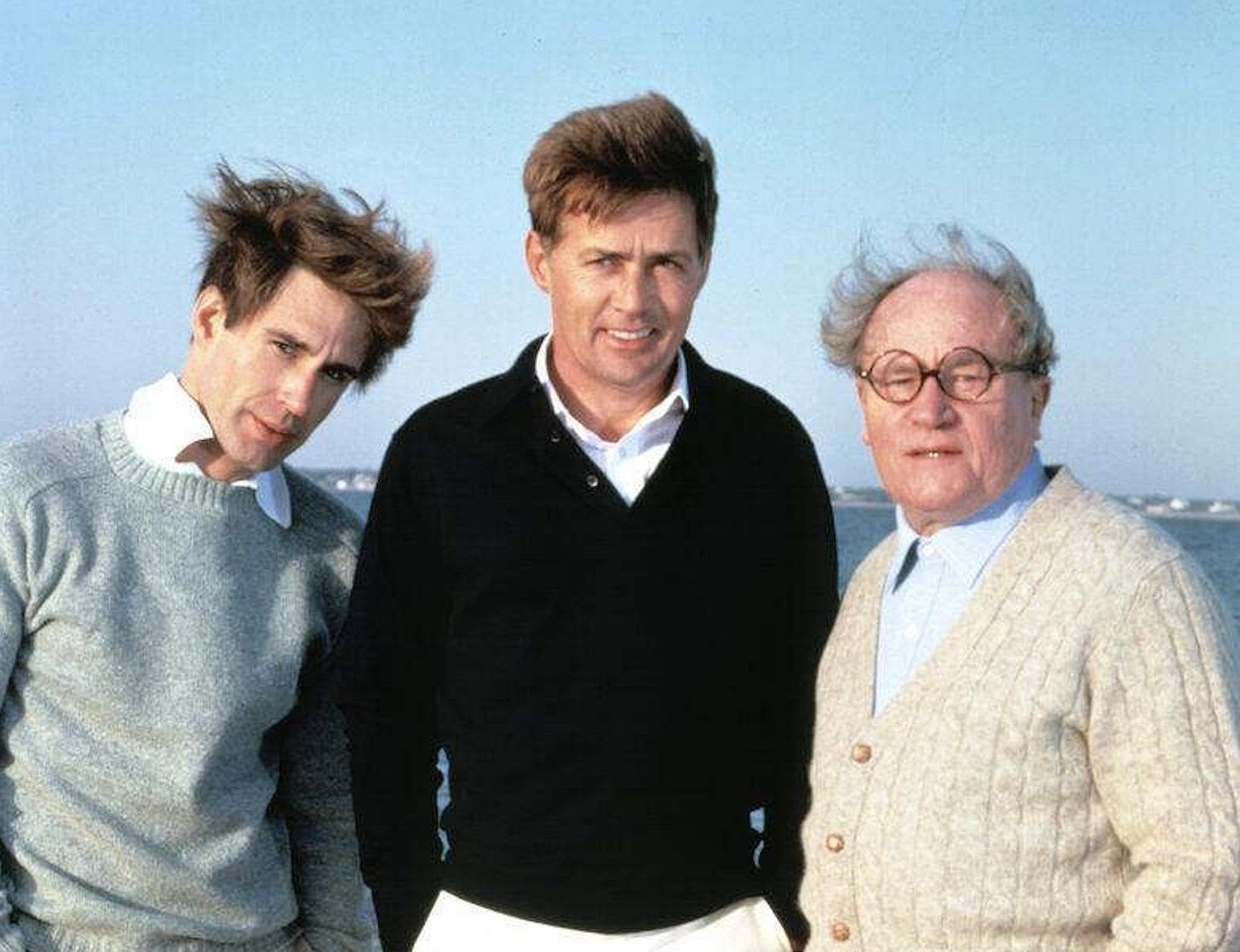Kennedy (1983) Part 1: “On some scarred slope of battered hill”
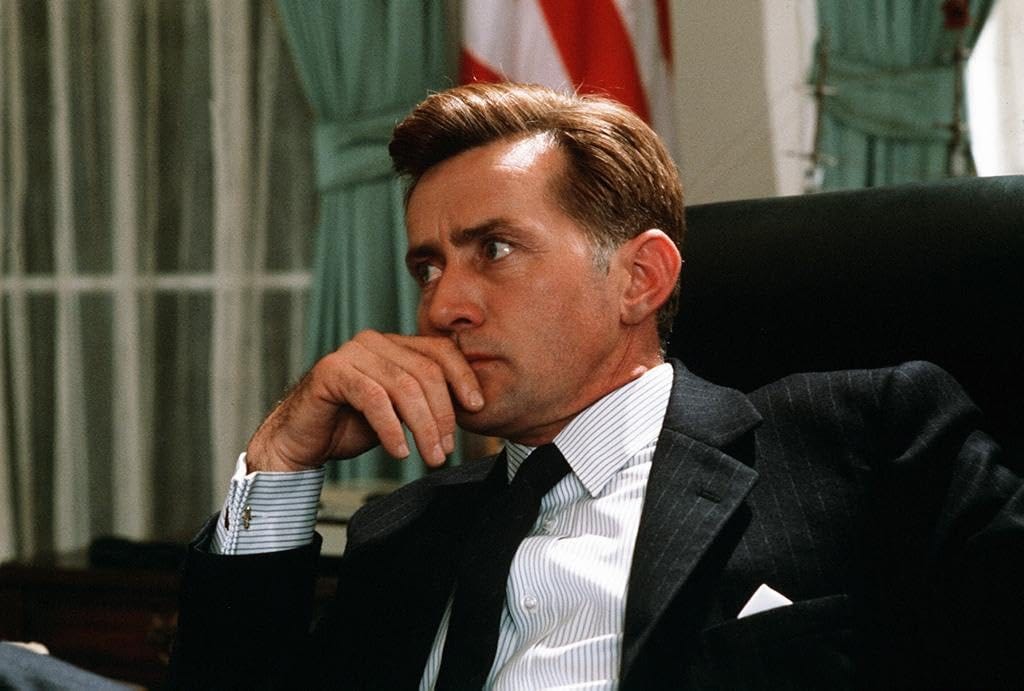
The quotation above is from the poem “I Have a Rendezvous with Death” by Alan Seeger, who died on the 4th of July, 1916, while fighting for the French Foreign Legion in the Somme offensive. (He was also the uncle of folk singer Pete Seeger). “I Have a Rendezvous” was a favourite poem of President John F. Kennedy, to the point that he requested his wife Jacqueline memorize it. In retrospect, this fascination with a poem about death, written by a young man shortly before his own demise, seems horribly prophetic for a man who would become the youngest US president to die in office. (Of course, one can read too much into such things: one of Kennedy’s favourite novels was Ian Fleming’s James Bond thriller From Russia, with Love, yet Kennedy did not die to the poisoned shoe-blade of a Russian babushka. But I digress). Since his death, John F. Kennedy has himself become the subject of much tragically-inclined art, much of which focuses more on his death than on his life or accomplishments in office; for instance, Oliver Stone’s JFK is entirely about the circumstances and possible conspiracies surrounding his assassination.
One depiction which bucks this trend is the 1983 miniseries simply named Kennedy, which stars Martin Sheen, a little under a decade after his turn as RFK in The Missiles of October (1974), as President John F. “Jack” Kennedy. Perhaps inevitably, it also begins with the fact of the assassination, but not an explicit depiction of it; instead, before we even see the man himself, we see the shocked and horrified reactions of his family and staff, and (paradoxically even more crushing) the happiness of his daughter Caroline (Jessica Ann Durr), who declares “Daddy’s home!” when she hears an approaching helicopter.
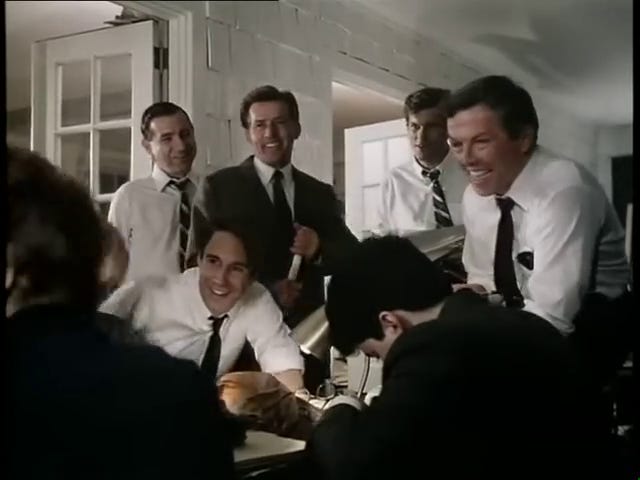
However, it then flashes back to Kennedy campaign headquarters at the Kennedys’ Hyannis Port compound on election night, 1960, with his staff and family (two categories with a significant amount of overlap) watching the election results come in. Among those directly involved with the campaign are his brothers Robert “Bobby” (John Shea) and Edward “Ted” (Kevin Conroy, voice of Batman), Kenneth O’Donnell (Trey Wilson), Pierre Salinger (Peter Boyden), advisor Dave Powers (Joe Lowry), and pollster Louis Harris (David Faulkner), who with a host of other staffers get updates on the county level via telephone. Actor Peter Lawford, Patricia’s husband, also makes an appearance, minus his luggage.
Upstairs, John’s wife Jacqueline “Jackie” (Blair Brown), who is very pregnant, is painting, supervised by artist William Walton (John Glover). In another house in the compound, parents Joe Sr. (E. G. Marshall) and Rose (Geraldine Fitzgerald), sisters Eunice Kennedy Shriver (Joanna Camp), Patricia Kennedy Lawford (Laurie Kennedy), and Jean Kennedy Smith (Frances Conroy), and Robert’s wife Ethel (Ellen Parker) watch the results on television. Although the race trends towards Kennedy, it is not definitive, and Richard Nixon does not concede in his television appearance that night.
The next morning, Salinger gets a call from an Associated Press reporter, telling him Kennedy is president-elect. Nixon does not appear on television to concede, instead having his press secretary Herb Klein read a brief statement. After a general celebration at the news and a brief speech by Joe Sr., the younger Kennedys play a football game while Joe Sr. and Rose watch from a window. Later, while John and Jackie are walking on the beach, Bobby delivers a paper with a message of congratulations from Winston Churchill. The Kennedys than travel by motorcade to the Hyannis Armory (with “Onward Christian Soldiers” playing non-diegetically in the background), where President-elect John F. Kennedy delivers his acceptance speech.
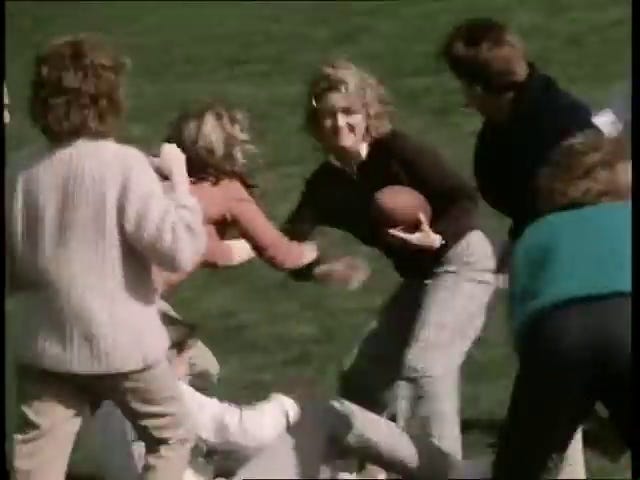
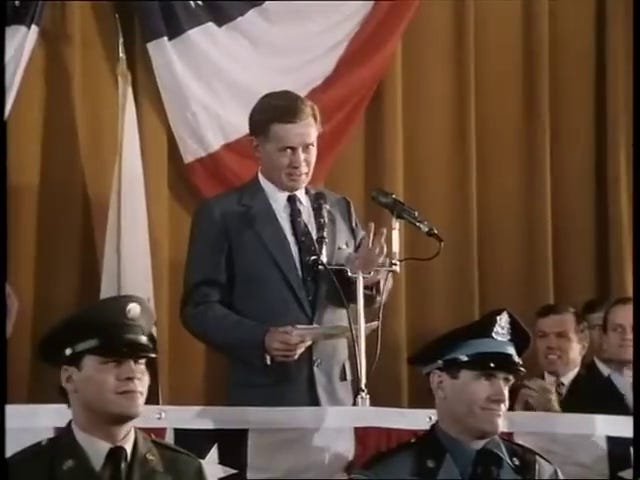
The second episode introduces the recurring antagonist of the series, who is not a Soviet leader or political rival, but instead one of the most sinister figures in 20th-century American government: Director of the FBI J. Edgar Hoover (Vincent Gardenia). Hoover considers Kennedy unfit to be president due to his sexual immorality, although coming from Hoover this may be rather hypocritical. Hoover instructs his agents to investigate Kennedy and his cabinet appointees, while Joe Sr. warns John about Hoover and Bobby warns him against personal indiscretions.
Kennedy assembles his cabinet, including Press Secretary Pierre Salinger, Appointments Secretary Kenneth O’Donnell, assistant Appts. Secretary Dave Powers, and White House Counsel Ted Sorensen (Rex Robbins), and puts Sargent Shriver (Al Conti) in charge of recruitment. John wants to find a role for Robert, but Bobby is resistant to working for him; Jacqueline gives an interview to the press. At the Kennedys’ Palm Beach residence, Director of Central Intelligence Allen Dulles (George Hamlin) and CIA officer Richard Bissell (Remak Ramsey) inform JFK of their training of anti-Castro Cubans and plans for an invasion of Cuba, codenamed JMARC, which they claim will succeed with no US military involvement. Meanwhile, Robert, Ted Sorensen, and historian Arthur Schlesinger, Jr. (David Leary) work on Kennedy’s inaugural address. Joe Sr. tries to convince Bobby to take the role of attorney general, but Bobby is worried about the appearance of political nepotism in Jack appointing his “kid brother”; John eventually convinces him to take the role because Bobby is the only person he trusts. Jacqueline gives birth to John F. Kennedy, Jr. via cesarean section.
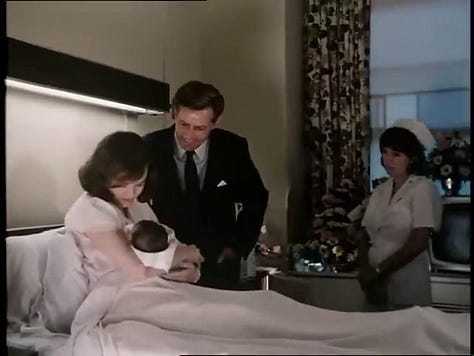
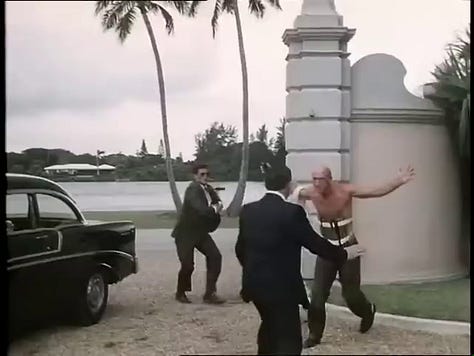
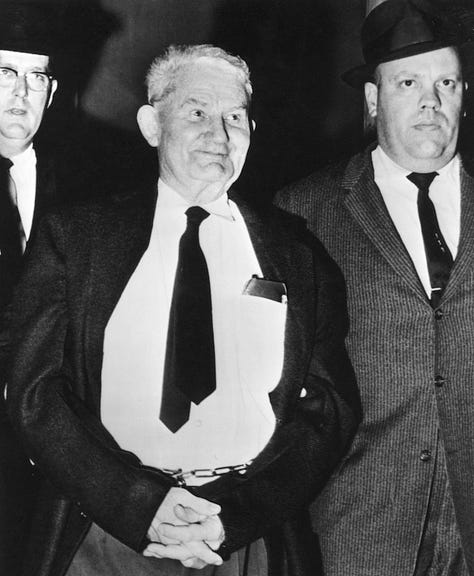
At Palm Beach, Richard Paul Pavlick (Kent Broadhurst) attempts to kill Kennedy while wearing eleven sticks of dynamite, but is stopped by the Secret Service. (This is a fictionalized expansion of the real events, in which Pavlick, who was a retired postal worker much older than how he is portrayed in this series, stalked and planned to assassinate President-elect Kennedy, but was arrested for crossing the center line of the road while driving). Mamie Eisenhower (Carmen Mathews) shows Jacqueline around the White House; Jackie barely restrains her distaste at the rundown, drafty nature of the house, the dreary furnishings, and the presence of a dentist’s chair (!).
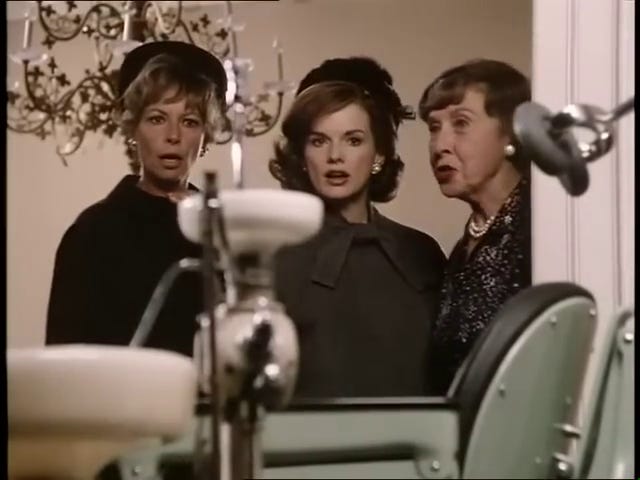
John and Sorensen continue revising the inaugural address while getting a family photograph taken with Jackie, Caroline, and Rose. John F. Kennedy takes the oath of office and delivers his inaugural address, while Hoover watches it thoughtfully on a television in his office. That night, after a toast to the Kennedys led by Lyndon Baines Johnson (Nesbitt Blaisdell), John and Jackie, Lyndon and Claudia “Lady Bird” Johnson (Tanny McDonald), and Bobby and Ethel dance at the Post-Inaugural Ball. Hoover, his office lit up by the celebratory fireworks over the Potomac, is disappointed by his agents reporting that they cannot find any dirt on Robert.
At the start of the third episode, John Kennedy and Ted Sorensen are preparing Kennedy’s first State of the Union address, knowing that they must use it to prepare Congress and the nation for the imminent invasion of Cuba. They are interrupted by Jacqueline, who discusses with John the terrible state the White House is in. Meanwhile, Robert tells Richard Bissell that the Bay of Pigs invasion is legally on shaky ground; Bissell attempts to reassure him by claiming the invasion has a two-in-three chance of success. John delivers the State of the Union while his parents watch it on television in Hyannis Port and Allen Dulles and Bissell discuss schemes to poison Fidel Castro by putting tablets in his drink or having a prostitute slip one down his throat, plans which even Dulles feels are far-fetched.
Jacqueline makes plans to renovate the White House; John does not want the cost of the overhauls to get into the press. News of preparations for the invasion are reported on television and in the newspapers, angering John, who delivers a statement on television to the effect that there will be no direct American military involvement. On April 17, 1961, the Bay of Pigs invasion begins; it soon becomes clear it cannot succeed without air support, despite Dulles and Bissell’s previous statement. John eventually makes the difficult decision not to provide air support, and the invasion of Cuba fails. Kennedy then makes it clear that Dulles will have to resign as head of the CIA; Bissell would also leave the organization early in the next year. While in they are in their swimming pool, Robert suggests to John that they have a lawyer named James Donovan make an unofficial deal to pay Castro in exchange for the return of captured members of Brigade 2506. At the FBI, Hoover’s men have acquired a recording of a woman on the telephone with John Kennedy.
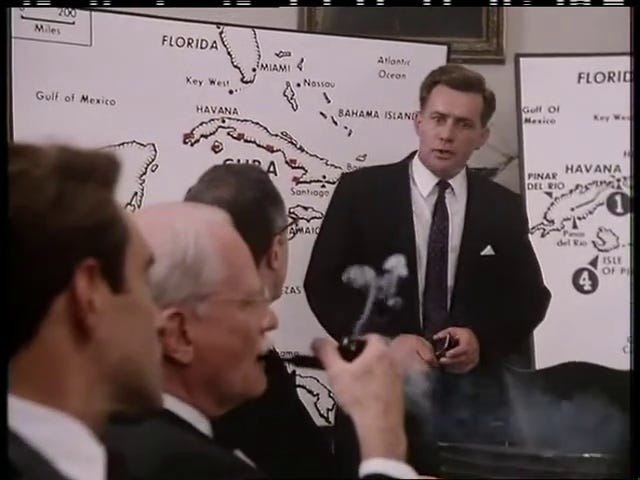
The fourth episode begins in the American south, where a black mother returning from the grocery store with her two children is brutally beaten by a group of white men, while the police look on and do not intervene; the entire sequence is set to a gospel version of “What the World Needs Now.” The rest of the episode spotlights some of the early events of the Civil Rights movement, particularly the Freedom Riders, who attempt to desegregate the interstate bus system. (For more information on the Freedom Riders, I recommend the excellent PBS American Experience documentary Freedom Riders (2010), as well as “Shiloh Witness,” the personal recollections of Freedom Rider Joan C. Browning). With this issue, the Kennedy brothers navigate a delicate tightrope between their theoretical support for the more formal civil rights movement and their irritation at the disruption and violence caused by grassroots activists, which weakens southern Democrats’ support and gives the Soviet Union fodder for propaganda. Simultaneously, the virulently racist Hoover actively attempts to discredit the civil rights movement. Back at the White House pool, Robert convinces John to give a speech in favor of civil rights. John bangs his head on a table while playing hide and seek with Jackie and Caroline, and sports a bandage while discussing Jackie’s expenses with her secretary Mary Gallagher (Wendy Sakakeeny). Jacqueline then confounds a pair of accountants hired by John by innocently discussing with them what category of expenses a pair of cows and various horse-related equipment belong under.
The Freedom Riders, on two buses, make their way to Alabama, where on Mother’s Day, May 14, 1961, a segregationist mob firebomb the Greyhound bus with Molotov cocktails and beat the Freedom Riders aboard. The local police do not intervene, and the rioters only leave when the Alabama Highway Patrol fire warning shots into the air. Dr. Martin Luther King, Jr. (Charles Brown) meets with Robert Kennedy, asking why he is delaying in taking action on civil rights.
The Trailways bus reaches the Birmingham bus terminal, where another mob beats the other group of Riders for fifteen minutes before police appear—which was exactly according to the orders of infamous Birmingham Commissioner of Public Safety Theophilus “Bull” Connor.
Robert discusses the situation in Alabama with his assistant, Tennessee-born John Seigenthaler (Jimmie Ray Weeks), explaining that Alabama Governor John Patterson (Gerald F. Gough) backed them during the election but is now “paying his dues” to the Ku Klux Klan for supporting his own gubernatorial bid; RFK sends Seigenthaler to ensure the Riders’ safety and talk to Patterson southerner to southerner. Patterson gives a press conference in which he says the state of Alabama "cannot be responsible for the safety of fools.”
While having dinner with King and some of his supporters, Robert asks why Hoover claims King’s associate, lawyer Stanley Levison (Larry Keith) is a Communist, worried that it will stain King and the whole movement; Levison states he was never a Communist. John and Robert agree to let Hoover surveil Levison in the hopes that he will find nothing and be caught in error. In Alabama, Seigenthaler tries to reassure the Freedom Riders, while Patterson refuses to grant Robert’s request that he protect the Riders and hangs up on him. John and Jackie have a humourous conversation about their acquiring a reputation for serving too much liquor and always favouring French things.
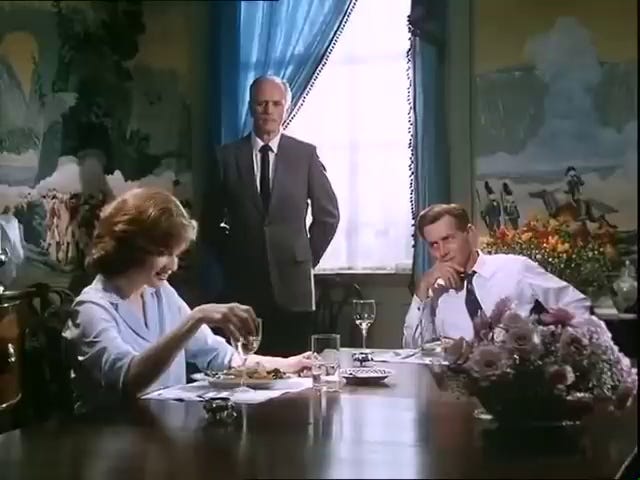
Robert has to personally order a Greyhound clerk at the Birmingham terminal to have one of the drivers take the Freedom Riders on the next leg of their journey, to Montgomery. At Montgomery, the Riders are again beaten, as is Seigenthaler, who later has a phone call with Robert from his hospital bed. Kennedy gives a speech to the nation about civil rights (this is modeled on his Address on Civil Rights, which he actually delivered two years later).
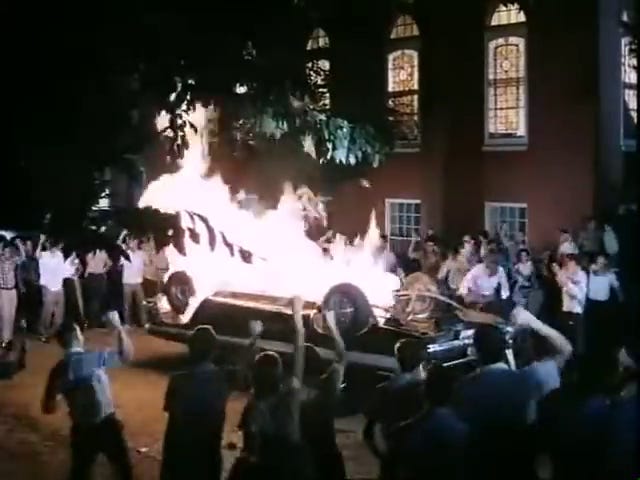
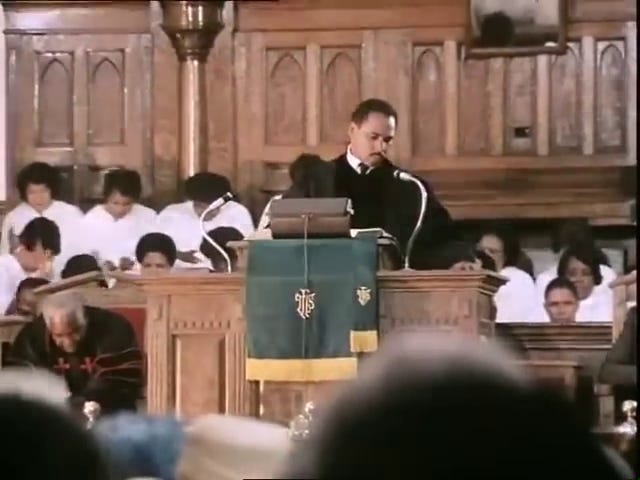
Martin Luther King Jr. travels to Montgomery personally and delivers a sermon at First Baptist Church, which is surrounded by a mob of three thousand whites who throw bricks at the church’s windows, overturn a car, and set the vehicle on fire. King then calls RFK from the church’s basement, begging him for help. At the same time, John, Jackie, and the Johnsons are at a reception with a number of African diplomats, making for a stark contrast between how African dignitaries and American citizens with African descent are treated. (The siege of First Baptist would eventually be broken up by U.S. marshals).
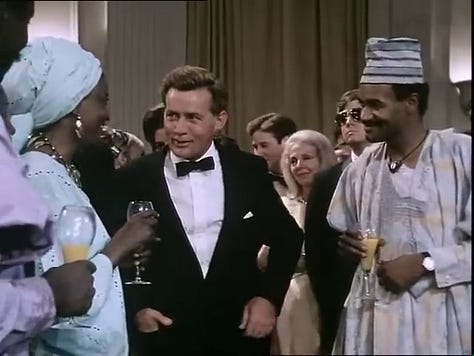
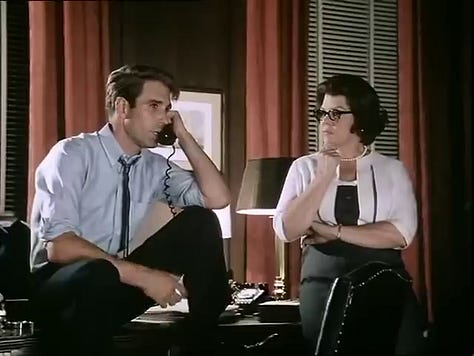
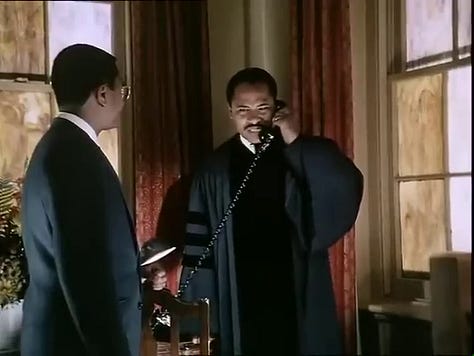
To be continued…
